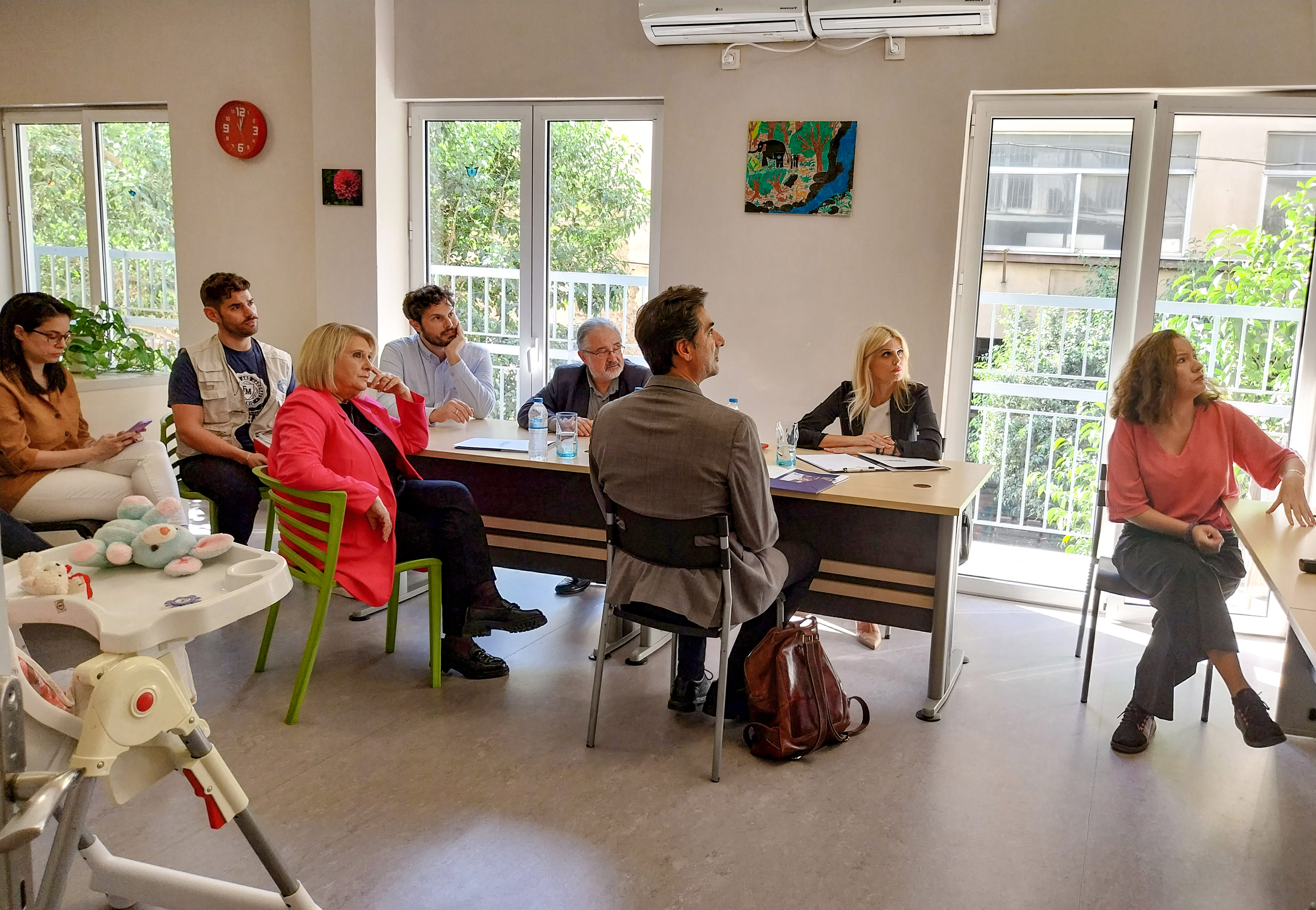Médecins du Monde welcomed the Deputy Minister of Migration and Asylum, Mrs Sofia Voultepsi, at the Open Accommodation Center for vulnerable women and their children, “A Step Forward“, the National Coordinator for the Prevention and Handling of Sexual Abuse and Exploitation of Minors, Ms Elena Rapti, and the Secretary General for Vulnerable Citizens and Institutional Protection of the Ministry of Immigration and Asylum, Mr Heracles Moskov.
The main topic of the meeting was the promotion of social inclusion and the institutional protection of vulnerable asylum seekers, such as children and women, and the safeguarding of their rights.
Médecins du Monde presented the objectives and results of the current programming period for the Open Accommodation Center to the state representatives, who in turn referred to a number of institutional priorities for the protection of vulnerable people.
In particular, Ms Voultepsi referred to the key points of the strategic plan of the Ministry of Migration and Asylum for the promotion of social integration, education, employment and protection of vulnerable citizens seeking international protection in Greece, while she highlighted the value of awareness-raising actions and training of trainers in the context of prevention and management of incidents of gender violence and child abuse – exploitation.
Institutional protection of vulnerable groups
Ms.Rapti then referred to the National Action Plan for the Protection of Children from Sexual Abuse and Exploitation 2022- 2027, setting out the public policy priorities and the main pillars of the plan, underlining the importance of the information campaign in child protection structures and institutions to protect children from the crime of sexual abuse and exploitation.
At the same time, cooperation issues were discussed for the immediate removal of obstacles to the safe housing of unaccompanied minors. Médecins du Monde pledged to assist in the effort for the immediate protection of unaccompanied minors and their integration into the housing structures of the General Secretariat for Vulnerable Citizens and Institutional Protection by immediately conducting the required medical examinations in the organization’s Open Polyclinics. For his part, Mr. Moskov referred to the new coherent framework of institutional protection of vulnerable citizens and the need for greater awareness and information of frontline staff with systematic programming on vulnerability issues.
Médecins du Monde and the state representatives pledged to continue productive cooperation, always with a view to protecting vulnerable people, preventing and mitigating the risk factors that very often increase vulnerability during the asylum reception and examination process, with emphasis on population groups with increased needs such as children, pregnant women and young people.
